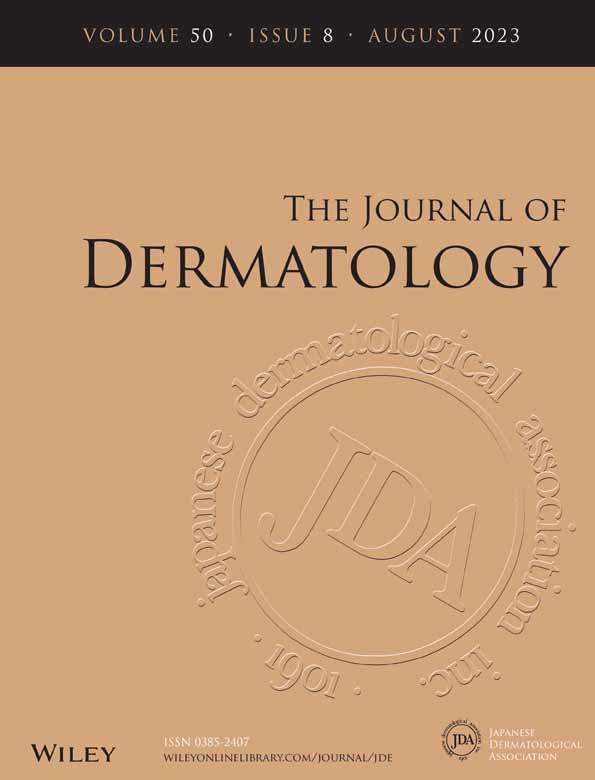Elevated serum IgE levels are not associated with poor treatment outcome in psoriasis vulgaris
Abstract
Psoriasis is a chronic inflammatory disorder which is associated with impaired skin barrier function. In this context, it was shown that serum IgE level was elevated in significant proportion of psoriasis patients. However, whether serum IgE levels are associated with treatment outcomes of psoriasis has not been understood. We retrospectively analyzed psoriasis patients who visited our clinics through electromedical records. Patients with history of atopic dermatitis were excluded. Total of 483 patients clinically or pathologically diagnosed with psoriasis vulgaris were included for analyses. Initial mean serum IgE level was 226 ± 490.3 KU/L and patients with IgE higher than upper limit normal value were 42.0% (n = 203). Psoriasis Area and Severity Index (PASI) 75 achievement rate according to IgE elevation was analyzed and no statistically meaningful difference was shown. In addition, logistic regression analysis to find out relationship between PASI 75 achievement and IgE titer also failed to show statistically significant relationship. In conclusion, serum IgE level was elevated in significant proportion in the patients with psoriasis, but its elevated level was not associated with treatment outcome.
CONFLICT OF INTEREST STATEMENT
None.




